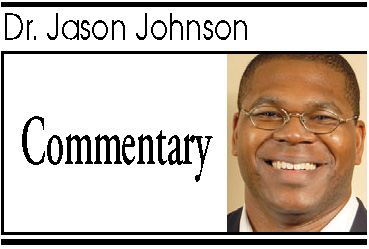(REAL TIMES MEDIA)—Television and movies often tell White viewers where to get stereotypical advice from. Are you facing a conflict? Ask the quiet Asian shopkeeper around the corner from your house. Need financial advice? Ask the neurotic Jewish guy from accounting. Need advice about love and sex? Ask your overweight sassy Black female friend or jive talking Black friend who works in the stockroom. Of course that leaves out certain people. If you’re a Black woman seeking relationship advice where do you go? Apparently the British Broadcasting Company.
Last week the BBC, dedicated an entire special assignment story on the supposed difficulty that college educated Black women over 30 are having in finding husbands in America. After running through the known statistics, primarily that African-American marriage rates have dropped over 20 percent since the 1970s, special assignment reporter Nina Robinson set out to find out why this is the case and what can be done about it. The arrogance of such a story is astounding. The problematizing of the African-American family has been an old chestnut of the faux progressive Whites since the famous Moynihan Report of the 1970s. It’s refreshingly disturbing to see that American progressives have now exported this attitude so much so that foreign press outlets are getting in on the action.
The main story features Robinson talking to “several” Black women who are generally in their 20s despite the story’s suggestion that the problem is for women in their 30s. She proceeds to set up a 25-year-old woman with two men, the first an ex-con without a college degree and the second an attorney who was 10 years older than her. To the surprise of no one except the staff at BBC’s special assignment, neither date went anywhere. Robinson and her producer then philosophized about why Black women didn’t date White men, and if Black women were in fact “fussy,” making them less appealing as potential mates. At least the report allowed women to speak but besides the inherent racism of such stories, the real problem is the lack of male input into these neverending discussions of Black dating.
The reality is that men are socialized to be pursuers, so if marriage rates are down, and if you are choosing to report that as a problem, you should be interviewing men as much if not more than women. There is this inherent myth that Black women are refusing the heartfelt and sincere advances of well meaning White men out there (notice how no other races of men are ever mentioned as options in these discussions, Hispanics and Asians need not apply).
But White guys with options aren’t looking for Black women as marriage partners as one interviewee astutely pointed out but those avenues are not pursued in the story. Nor do these stories ever look at the unique factors affecting African-American men, who have disproportionately suffered job loss as the manufacturing sector has left America, limiting a man’s chances to make a good wage and be able to afford marriage. Or perhaps for the first time in history Blacks are able to do what Whites have been doing for centuries: enjoying an extended youth due to better incomes and higher levels of education. Just because sistas aren’t married doesn’t mean they’re home on a Friday night either. And what, pray tell, is the alternative suggested by the BBC?
That African-Americans rush into marriages that won’t make them happy because we must compare our lifestyles to Whites? Given that 88 percent of African-American men who marry are marrying Black women suggests to me that the sky is not falling. Furthermost, women that I speak to, college educated or not, are perfectly happy in the single life rather than marrying someone just because they’re turning 30 and are afraid their ovaries will go unused.
African-Americans have been meeting, falling in love, getting married and having kids, and getting divorced and looking for love again long before the BBC, CNN or any other media outlet decided to make Black matchmaking the stopgap story for a slow news day. And I’m pretty confident we will continue to do so without any outside help. Besides, what’s so wrong about 30-plus Black women continuing to explore their options until they find Mr. Right? When White women do that, it’s celebrated to the tune of five seasons and two Hollywood movies of “Sex and the City.” Apparently as far as the BBC is concerned, enjoying the single life is an activity beyond the grasp of Black women in America.
(Dr. Jason Johnson is an associate professor at Hiram College in Ohio.)
